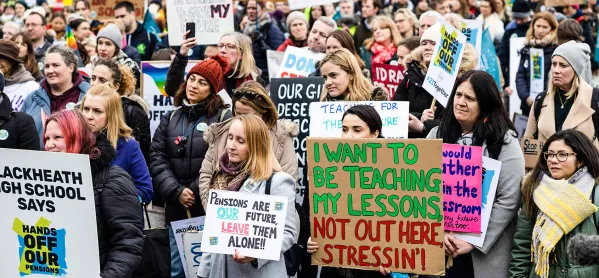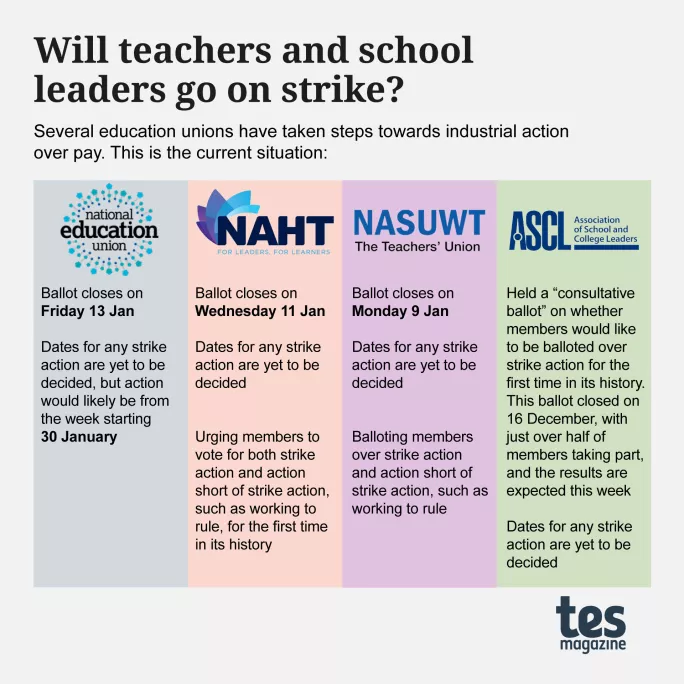The government is to introduce new laws allowing it to impose a “basic level of service” in some sectors when industrial action takes place - but it has held off doing so in schools in favour of attempting “voluntary” agreement with unions.
The Department for Business, Energy and Industrial Strategy (BEIS) has announced that a bill will be introduced in Parliament in the coming weeks to ensure that vital public services will have to maintain a “basic function” when workers go on strike.
Minimum safety levels will be set for fire, ambulance and rail services, and the government said it will consult on the “adequate level of coverage” for these sectors.
However, the government said that for other sectors included in the bill - such as health services and nuclear decommissioning, alongside education - it expected to continue to reach “voluntary agreements” but would look to consult on minimum safety levels, should these voluntary positions not be agreed.
The government also said it will invite trade unions to meet for what it calls “honest, constructive conversations” about what is “fair and affordable in public sector pay settlements for 2023-24”.
New legislation to restrict strikes
It said ministers were reaching out to unions to invite them to discuss the evidence that the government will be submitting to the pay review bodies - and hopes that staff bodies will also share their evidence.
The announcement on the new legislation has been made amid a wave of strikes among public sector workers.
The NEU and NASUWT teaching unions, as well as the NAHT school leaders’ union, are currently balloting members at schools in England over strike action on pay, with ballots set to close next week.
Announcing the policy, business secretary Grant Shapps said the government was ”reaching out to unions” to have an “honest conversation on pay, conditions and reform”.
He added: ”As well as protecting the freedom to strike, the government must also protect life and livelihoods. While we hope that voluntary agreements can continue to be made in most cases, introducing minimum safety levels - the minimum levels of service we expect to be provided - will restore the balance between those seeking to strike and protecting the public from disproportionate disruption.”
Geoff Barton, general secretary of the Association of School and College Leaders, which has carried out a consultative ballot of its members to find out whether they want a formal ballot on strike action, said that the union “looks forward to hearing directly from the government about the offer of discussions ahead of the formal pay review process”. But he warned that “dialogue...should be without strings attached, rather than the condition alluded to in the press release that unions will be expected to share certain evidence”.
Mr Barton added that “the threat of imposing minimum service agreements is just anti-union sabre-rattling and hardly conducive to cordial industrial relations”.
Speaking this morning, Labour leader Sir Keir Starmer said a government run by him would repeal further strike restrictions brought in by the Conservatives.
The High Court last month gave school staff unions the green light to pursue legal action against the government over new laws allowing agency workers to cover for those on strike.





